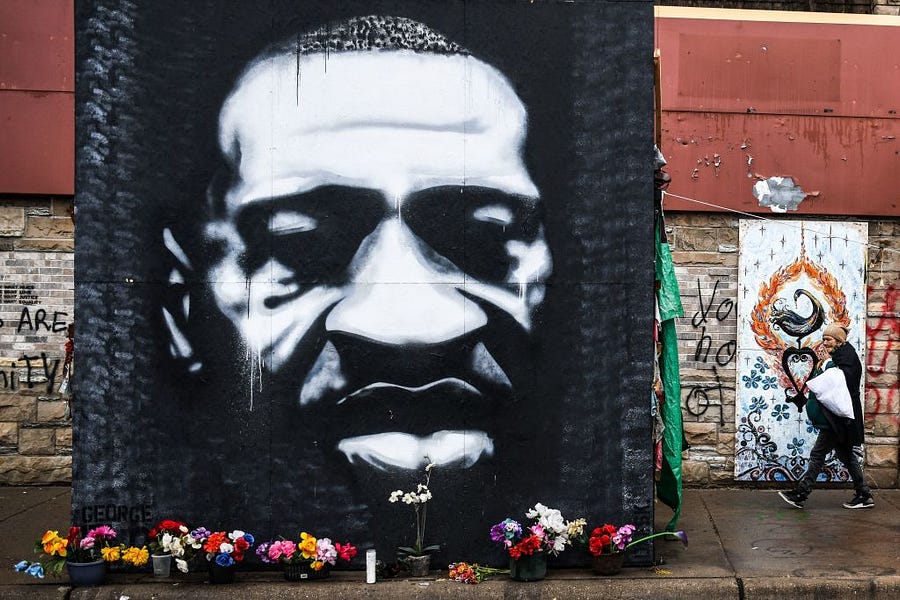It has been 60 years since Yale social psychologist Stanley Milgram conducted his famous experiment on obedience to authority, but the trial of Minneapolis police officer Derek Chauvin on multiple criminal charges, including third-degree murder, for the death of George Floyd has given us new reason to look back at Milgram’s experiment.
Chauvin’s trial will determine what, if any, legal responsibility he bears for the death last May 25 of Floyd. Milgram’s experiment leads us to a more difficult question: How was a single police officer, Derek Chauvin, able to kneel on Floyd’s neck for more than eight minutes without being effectively challenged by the other police officers on the scene?
Milgram began his experiment in July 1961, the same month that the trial in Jerusalem of Adolf Eichmann, a high-ranking Nazi official who played a key role in transporting Jews to German extermination camps, started. Milgram’s experiment was designed to show how willing people were to obey authority even when what was asked of them was cruel. Eichmann’s trial dovetailed with Milgram’s concerns. The colorless Eichmann’s actions were the classic example of what the historian Hannah Arendt in her account of the trial, Eichmann in Jerusalem, called the “banality of evil,” and in his 1974 book, Obedience to Authority, Milgram paid tribute to Arendt, noting that the concept of the banality of evil “comes closer to the truth than one might dare imagine.”
Milgram’s experiment consisted of taking volunteers and dividing them into the roles of teacher and learner. The division was planned so that the volunteer always ended up as teacher, while the learner was a paid participant. The volunteer was instructed by the experimenter to give electric shocks to the learner (a paid participant) for wrong answers. How far would the teacher go in obeying the experimenter was the issue Milgram focused on. The answer was very far—a conclusion consistent with that of subsequent Milgram-like studies.
The learner was placed in an adjacent room, and as the test progressed was given increasingly large, fake shocks. At 75 volts the learner was instructed to start to scream. From 150 volts to 330 volts the learner was instructed to scream with increasing intensity. After that, the teacher’s questions were met by silence. In the end 65 percent of the teachers continued to shock the learner up to the maximum 450 volts.
What makes the Milgram experiment especially relevant to Chauvin’s trial is the nature of Floyd’s death. He was not killed by a panicky policeman firing his gun. Nor was he killed by an angry policeman in a rage. Floyd’s death, like Milgram’s experiment, played out over time and for that reason has seemed particularly horrifying.
According to the official charge statement filed in district court against Chauvin, he had his knee on Floyd’s neck for 8 minutes and 46 seconds, and for 2 minutes and 53 seconds of this time, Floyd was unresponsive. Chauvin and the three other policemen on the scene were not forced into a rushed decision on how to treat the handcuffed Floyd.
In the case of Chauvin, we will have to wait for his trial to learn more about his thinking during his encounter with Floyd. What is clear from the video of the scene is that Chauvin ignored Floyd’s multiple cries of “I can’t breathe,” just as the teachers in the Milgram experiment ignored the cries of pain from the actors playing the learner. But there is a key additional element at work in Minneapolis, where Chauvin’s impact on the other police officers on the scene parallels that of the Milgram experimenters who were able to influence various teachers to ignore the learner’s cries of pain.
The official charge description in the Floyd case points out there was discussion of how to treat Floyd among the police on the scene. When officer Thomas Lane asks Chauvin, “Should we roll him on his side?” Chauvin says no, and when Lane then says, “I am worried about excited delirium or whatever,” Chauvin again brushes him off, saying, “That’s why we have him on his stomach.”
After this exchange, neither Lane nor two other officers who were present, J. Alexander Kueng and Tou Thao, tried to intervene on Floyd’s behalf. Lane was on his fourth day on the force and Keung just his third. Chauvin, a 19-year police veteran, was deferred to as an authority figure rather than regarded as a peer. As the charge description notes, “None of the three officers moved from their positions.”
Might Floyd still be alive if the three other policemen on the scene, now charged with aiding and abetting Chauvin, had refused to go along with Chauvin’s actions? We can only guess. The Milgram experiment helps us see that in police departments in which racism—covert or overt—exists having police officers willing and able to intervene when racial abuse occurs is crucial. Calls to defund the police don’t begin to meet this problem.
In the widely viewed Darnella Frazier video of George Floyd’s final minutes, what stands out is how many in the crowd realize the danger Floyd is in. One man says, “He’s not responsive, bro.” It is the police who collectively fail to respond to the peril in which they have placed Floyd.






Please note that we at The Dispatch hold ourselves, our work, and our commenters to a higher standard than other places on the internet. We welcome comments that foster genuine debate or discussion—including comments critical of us or our work—but responses that include ad hominem attacks on fellow Dispatch members or are intended to stoke fear and anger may be moderated.
With your membership, you only have the ability to comment on The Morning Dispatch articles. Consider upgrading to join the conversation everywhere.